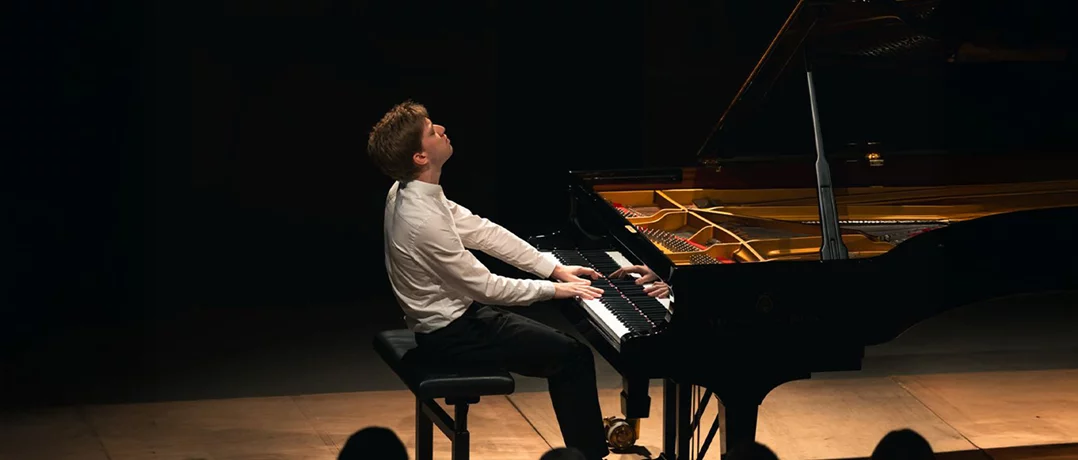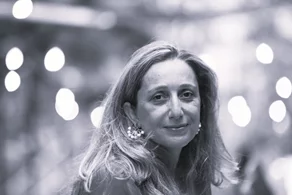After a two-year break, Les Musicales de Baabdath returns with “Strings of Hope,” blending world-class performances and mentorship for young Lebanese musicians.
Les Musicales de Baabdath return after a two-year hiatus
Les Musicales de Baabdath return after a two-year hiatus


After a two-year absence due to regional instability, Les Musicales de Baabdath returns with renewed energy and a heartfelt mission: to bring world-class classical music to Lebanon, free of charge.
Founded in 2016 by Sleiman Corbani, who is as well the festival’s artistic director, the event began almost by accident. What started as a house concert with a pianist, his former teacher, and a violinist at the family home in Baabdath has since evolved into one of the country's most anticipated classical music gatherings.
“I had just bought a new big piano,” Corbani recalls.
We invited about 80 people for a recital at home. At that time, there was no plan to create a yearly festival.
However, six months later, the idea took root. Due to logistical challenges, chiefly his mother's refusal to move the furniture again, the concerts were soon relocated to the local Saint Anthony of Padua Church. Later, performances moved to the town’s new Maronite church, which has yet to be consecrated.
A team of local volunteers and music lovers, many from Baabdath, helped shape the festival's identity. Over time, it earned a loyal following among classical music enthusiasts. Despite its success, the 2023 and 2024 editions were canceled.
“In 2023, everything was set, but the conflict in Gaza erupted at the same time. We held one concert, then had to cancel the rest,” Corbani says. “In 2024, we were fully prepared, but the war that broke out in September forced us to cancel the festival before we could even announce it.”
A festival reborn: strings of hope
Now, in 2025, Les Musicales de Baabdath returns under the banner “Strings of Hope.” The festival is relaunched in tandem with the Strings of Hope Mentorship Program, in partnership with the Goethe-Institut Libanon and in collaboration with the Lebanese National Higher Conservatory of Music.
This year’s focus is on nurturing young Lebanese pianists. The festival will open with a performance by five advanced piano students from the Conservatory, coached by renowned German pianist and pedagogue Holger Groschopp.
Under the patronage of the Lebanese Ministry of Tourism, the lineup features a blend of international talent and homegrown excellence. Highlights include the Lebanese debut of soprano Anna El-Khashem, an internationally acclaimed artist with Russian, Lebanese, and German roots, alongside performances by Lebanese diaspora Sary & Ayad Khalife , and French pianist Sacha Morin, whose expressive technique has earned him acclaim across Europe.
The program spans a wide range of genres, from the European classical canon to oriental-infused compositions, Latin rhythms, and Armenian musical heritage. Audiences can look forward to vibrant performances by the Arthur Satyan Quartet and the Yerevan String Quartet, among others.
At its core, the festival remains deeply committed to celebrating Lebanese musical excellence. Highlights include works by composer Boghos Gelalian, newly commissioned pieces by the Khalife brothers, and a world premiere of a composition by Houtaf Khoury.
These composers remind us that Lebanon’s music scene is still alive and deeply moving.
The challenge of keeping it free
Despite the festival’s growth, financing remains a challenge, especially in Lebanon’s current economic climate.
“In 2016, we didn’t think about the challenges we’d face,” Corbani says. “Back then, sponsors were easier to find. But after the 2019 crisis, it became much harder.”
The question of introducing a symbolic fee has been raised, but Corbani remains committed to accessibility.
“Many ask why we don’t charge even a small amount. But for now, we want to keep it free, if possible,” he says. “Whether that continues depends on the support of our sponsors and supporters.”
Corbani is quick to credit the festival’s survival to its backers. “People think I’m the one funding it. I’m not,” he says, noting he often includes sponsor logos on all materials as a gesture of transparency and gratitude. “Sometimes I do contribute personally, after all, it’s my baby, but this festival exists thanks to embassies, institutions, former banking sponsors, and a passionate team.”
As Les Musicales de Baabdath celebrates nearly a decade since its humble beginnings, its mission remains the same: to create a space where music transcends hardship, and hope resonates through every note.
“With deep gratitude,” Corbani says,
We continue, because music must never be silenced.


